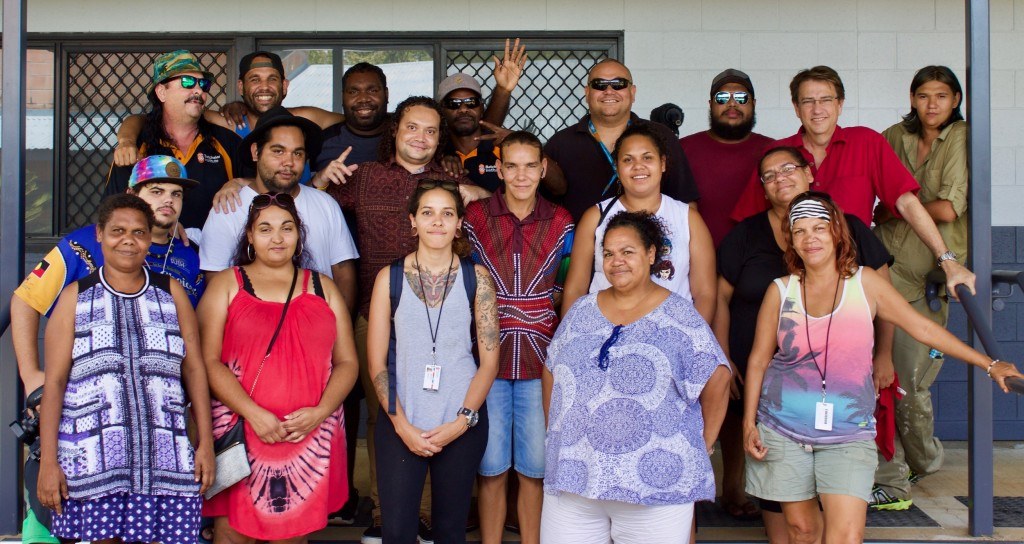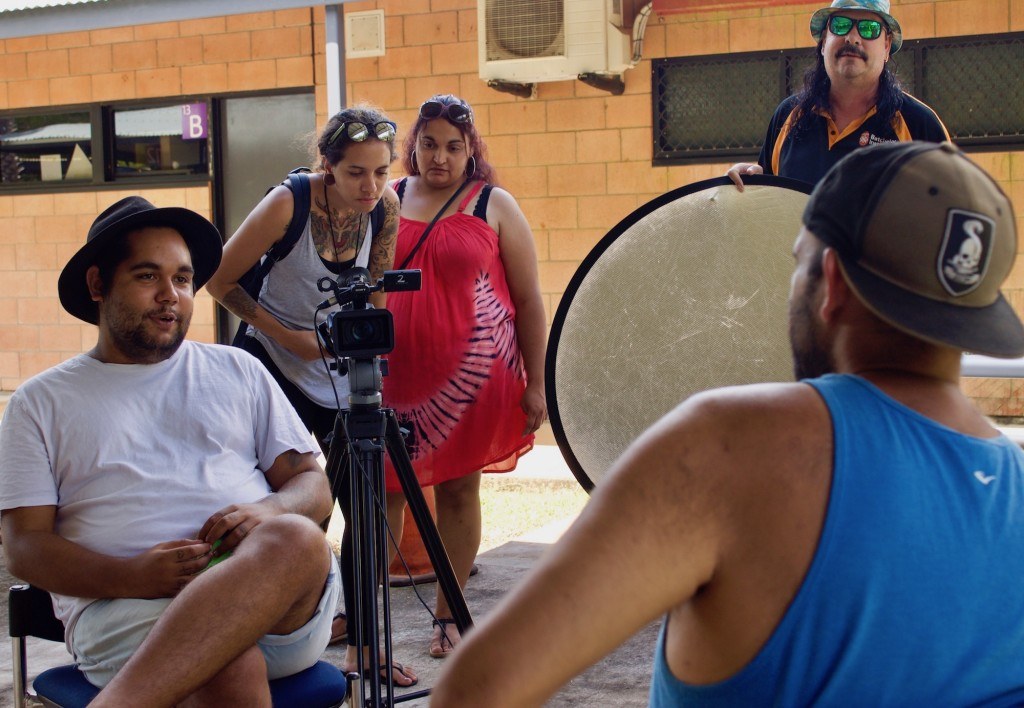

Aboriginal and Torres Strait Islander students have converged at Batchelor Institute to begin their studies in screen and media. Australia’s Indigenous media outlets play a valuable role in challenging stereotypes and giving Aboriginal and Torres Strait Islander people a voice through both community-based and mainstream networks, allowing them to portray often complex issues accurately and realistically.
The next generation of Indigenous broadcasters are cutting their teeth at Batchelor Institute and are developing skills in radio programming and announcing, as well as film and television production.
The Indigenous Remote Communications Association (IRCA) stated in 2016 that ownership and management of Indigenous media is critical for the affirmation of Indigenous people, as well as for the maintenance of culture, language, stories and Indigenous histories.
IRCA also found that approximately 73% of Aboriginal people in the Northern Territory and more than 50% Aboriginal and Torres Strait Islander people across Australia listen to an Indigenous radio station every month. This shows how highly valued Indigenous radio and broadcasting is by Aboriginal and Torres Strait Islander people.
Batchelor Institute aims to assist in providing the industry with qualified and capable Aboriginal and Torres Strait Islander broadcasters through these kinds of educational programs.
Previous graduates of Batchelor Institute’s media courses have gone onto to significantly shape the Indigenous and wider media industry, winning awards and taking up key roles as broadcasters across the country. Batchelor Institute offers three industry recognised qualifications in media, taught by lecturers with decades of experience as professional broadcasters and educators.
Students are often undertaking the course whilst also participating in community radio, working as filmmakers or as journalists within their own communities.
Student Heath Baxter came to Batchelor Institute to further improve his skills after volunteering in community radio since 1997. He has been working on getting back into filmmaking.
“I worked my way over to Larrakia radio and I was there for a fair few years. Then I left to do other things. I came back probably 2014 and decided to get back into film making, trying to get into that area of media”
Heath has already seen his work broadcast nationwide whilst studying at Batchelor Institute.
“Last year, when I was doing the training with certificate four, I put in a synopsis for a TV series called Our Stories on NITV. I was one of the lucky ones that got chosen so I got my first TV credit and that was because of all the training and mentors here at Batchelor Institute, who passed on those skills and their knowledge of the industry and how it works.”
He has returned this year to complete his diploma and further build on his promising career as an Aboriginal and Torres Strait Islander filmmaker.
“I’m here now for the Diploma of Screen and Media. My direction is to make documentaries, so that is my goal and the reason why I’m here at Batchelor Institute. I’ve already done one about my late grandfather”

Fellow student Maxwell Tasman also has been making waves as a media professional, taking out two major awards at the National Remote Indigenous Media Festival last year.
“I’ve been doing remote community broadcasting back home. First I started as a filmmaker and then I started doing radio broadcasting. Here at Batchelor Institute last year I did a Certificate III with Paul Tolley in radio broadcasting. And now I’m here with Patrick doing film work,” said Tasman.
“I really want to get back into doing film work because I started as a filmmaker with 8PAW Media a couple years back. Now this is my tenth year working with media.”
“For me, coming here, seeing all the family come down here studying at Batchelor is important. My mother came here to study a long time ago. This time, especially doing media courses, it is interesting to do more studies for myself.”
Batchelor Institute lecturer Patrick McKenzie is a part of guiding the students in learning film and television production. As an Aboriginal and Torres Strait Islander educator, Patrick values being able to share industry knowledge within a culturally respectful environment.
“One of the things that I love about teaching at Batchelor Institute is being given the opportunity to be able to share the skills and knowledge that I have within the film industry with other Aboriginal and Torres Strait Islander people.”
“My students come from all over Australia. All the way from the remote regions of WA to the communities in Halls Creek, all the way down across the East Coast. We have people from remote communities and urban places. There are Aboriginal and Torres Strait Islander people from all different tribes and different language speaking groups.”
“What is really valuable about learning here at Batchelor Institute is that they are developing skills at an industry standard but are also in a culturally appropriate environment. It gives Aboriginal and Torres Strait Islander people the opportunity to utilise these skills and take them back to the places that they live, whether they be in remote or urban locations”
“It is a place where they can feel comfortable, and I think that is really important.”
“Many of my students have family members who have come through and done the courses. A lot of them are returning students who have come here and gone through the certificate three and they want to continue their studies with Batchelor Institute.”
“Our students have gone onto jobs at the ABC or have gone on to get their own film credits, even whilst studying at Batchelor Institute”.
With this years’ cohort of media students getting stuck into their courses, it surely won’t be long till you see their work popping up in media outlets across the country.
Words and images: Chelsea Heaney.
